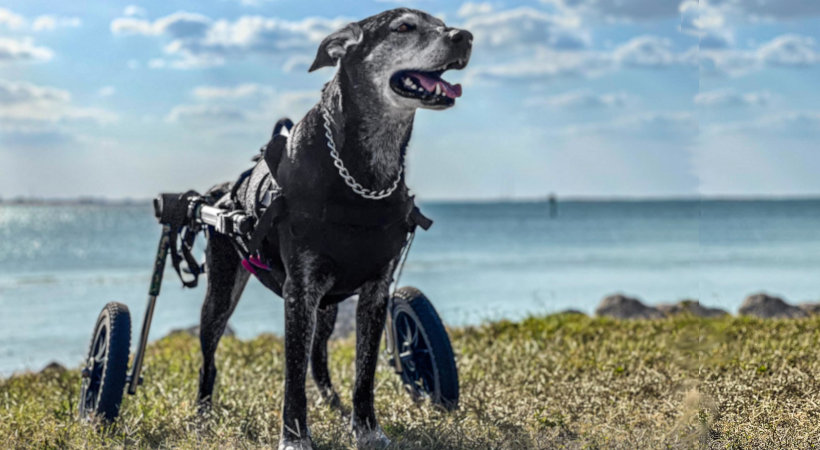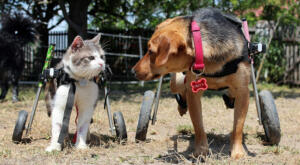Your pooch is not used to conveying much of his problems so you naturally have to take extensive care of him. Lupus is an immunity-related disease and attacks the dog by tearing down the tissues of the body.
This disease is dangerous to the owners as well so, if your dog has it by any chance, you might need to consult a vet as soon as possible. Let’s concentrate on how it affects your pet and what treatment should be provided to them.
Types of Canine Lupus
1. Discoid Lupus Erythematosus
This is one of the most common types found in pooches and affects their skin. If you see that the skin of your dog is having lesions, crusting, or depigmentation, then you need to check with your pooches’ doctor immediately.
If your pooch is suffering from the disease then, you will find that lesions are only spread to a singular region like on top of the nose. The cause of the disease is still uncertain but, taking your dog in the sun can be a really bad idea and things might even get worse.
Try your best to give them maximum cover when taking them in the sun for any purpose.
Symptoms
Symptoms related to Discoid Lupus Erythematosus will mostly affect the skin. Below are some symptoms you should look closely at:
Pale skin over the nose
- Skin crusting or flaking
- Ulcers or body aches
- Unknown marks or scars
- Redness on nose, skin, lips, or face
- Pain over the affected area
- Itching or scratching over the area affected
- Bacterial infections and flu
2. Systemic Lupus Erythematosus
The second type of Lupus is considered to be the serious one and can affect the dog in many uncertain ways. The most common areas that are attacked according to doctors are kidneys, skin, and joints but, it has the potential to affect any organ in the body. The disease has also been referred to as “The Great Imitator” due to its ability to show multiple clinical signs and symptoms. If your pooch catches the disease, the symptoms will entirely depend on the area affected.
Symptoms
This type can show symptoms anywhere in the body. SLE is an immune disease that starts attacking the tissues and cells of the body so, it tends to affect any organ where tissues or
cells are getting affected. Symptoms mentioned below can indicate a chance of the disease attacking your pooch:
- Stiffness in body
- Arthritis or Muscle pains
- Fatigue and losing interest in food
- Fever
- Swollen lymph nodes
- Swollen liver, spline, or kidneys
- Frequent urination and increase in water intake
- Mouth Ulcers
- Seizure
Lupus Diagnosis
Lupus is a word originally derived from the Latin language and typically means ‘wolfs’. The disease was first found in humans with wolf’s bite-like marks on the face. The cause of Lupus has still not been discovered but, researchers say that it might be genetic components, Ultraviolet rays, stress, medications, or viral fever responsible for a condition like Lupus.
The disease can also occur in dogs, mostly middle-aged female ones. They are more prone to developing SLE than DLE and that is exactly why we need to know if there are any diagnoses of this uncertainty. The disease can have multiple symptoms so; it is difficult for a doctor to diagnose it without the help of tests.
A full body checkup might be recommended and the doctor might even ask for medical history and permission to withdraw some blood samples for testing. If the tests sound suspicious, then a special test known as Antinuclear antibody (ANA) is performed to confirm if your pooch is suffering from the disease or not.
Is Lupus in Dogs Curable?
Unfortunately, this disease is not entirely curable but there is medication and treatment to manage the symptoms and keep your pooch safe. The first variant that is Discoid Lupus Erythematosus can be treated easily. The doctor will largely focus on controlling your pooch’s sores and ulcers before they try to appear and start irritating him. The use of steroids is made to keep the immune system stable and help fight inflammation in the body. So, you might have to find a way to put your dog on oral steroids until he feels fine again.
In addition to this, your pooch may also require some external supplements like omega-3, Vitamin B and C.
You also have to make sure that your dog gets exposed to minimal sunlight and stay away from Ultraviolet rays as much as possible, failing which the condition might get worse.
Systemic Lupus Erythematosus on the other hand will receive treatment according to the organs that are getting affected because of the disease. The aim of the treatment is the same as the DLE and that is to suppress the immune system’s reaction and reduce inflammation.
This type might use chemotherapy to reduce pain and the negative impact on the immune system along with steroids. Sunlight exposure is harmful here as well and your pooch should be protected from the harmful raise as much as possible. A set of antibiotics might also be assigned to treat the secondary infection if any.
Guest Author:
Harsh Auror
Harsh has worked in publishing and marketing since 2012. He started his career at Journal and has since worked and written for several top equestrian publications and Technology websites. Most recently, he worked in corporate marketing with a focus on strategic and digital planning. A lifelong dog, & horse owner, Harsh currently writes for Stallion House.

Related Articles
Did we answer all your questions on "Lupus in Dogs"?








